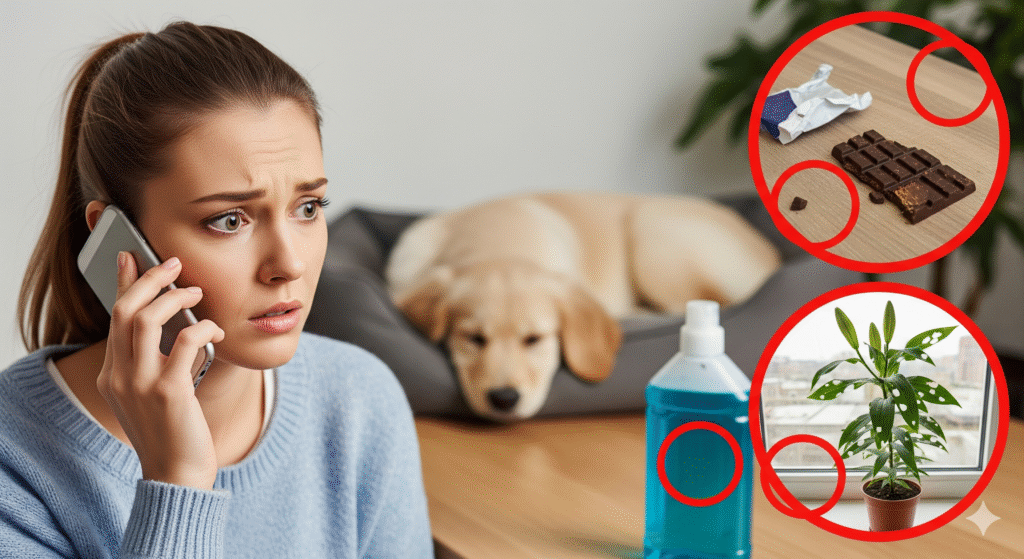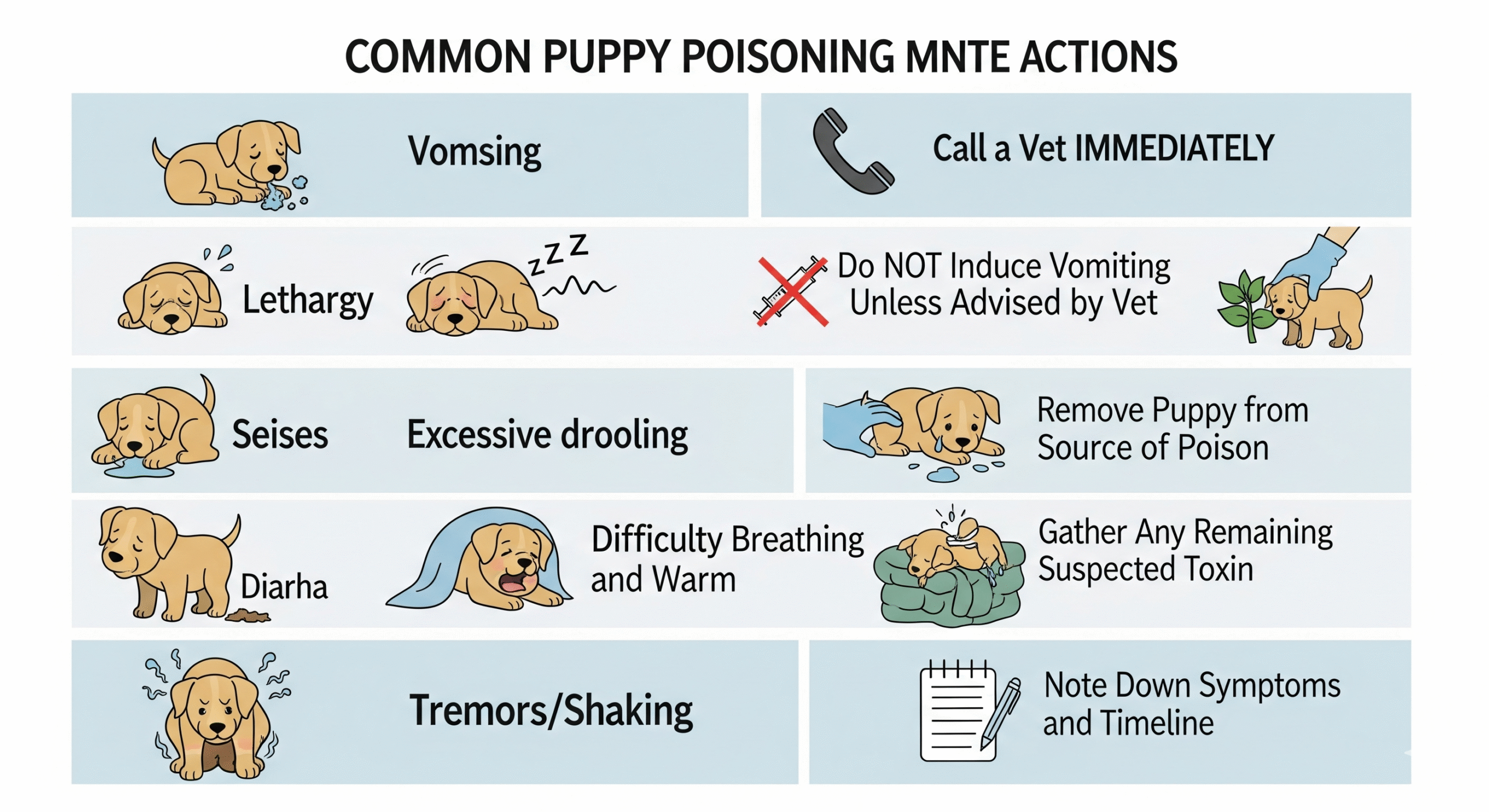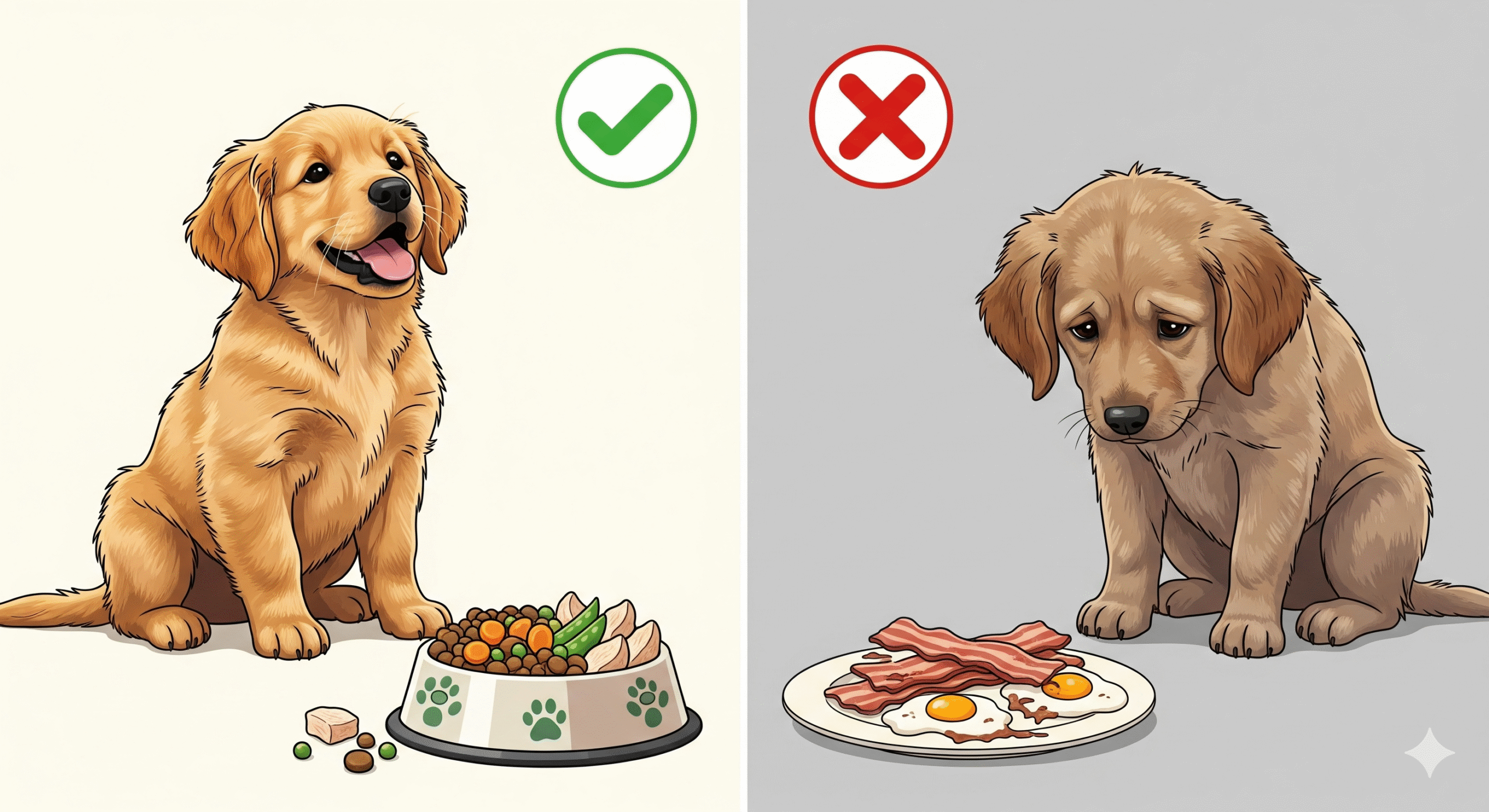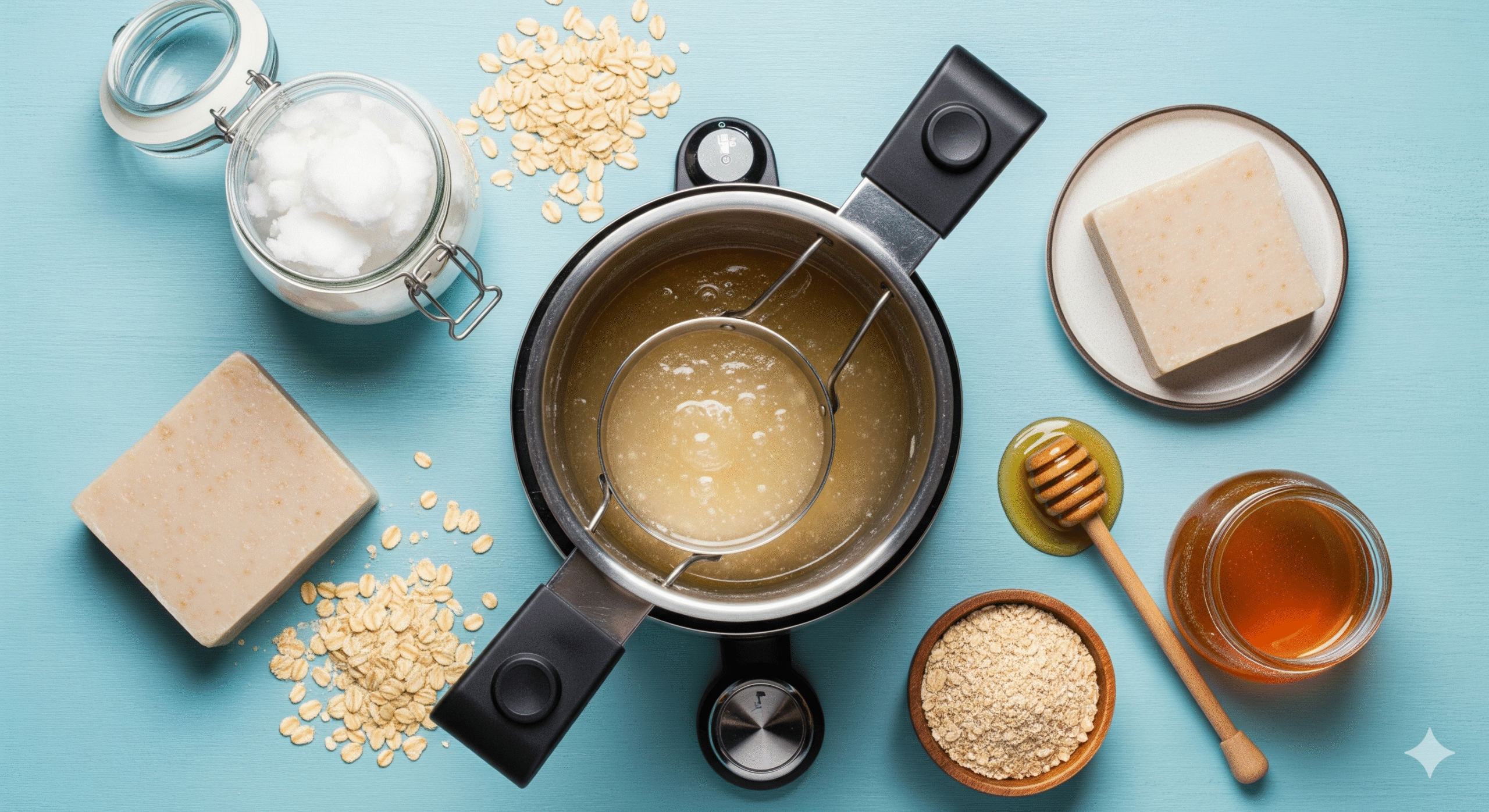Puppies explore the world with their mouths, a behavior that puts them at extreme risk for accidental poisoning. Their small size and developing metabolism mean even a tiny amount of a toxic substance can be life-threatening. Every minute counts in a poisoning emergency, and knowing what to do—and what not to do—can mean the difference between life and death.
This is not just an article; it’s a vital reference guide. We will equip you with the knowledge to recognize the signs of poisoning and take swift, decisive action.
Here’s what you need to know:
✔️ The most common household poisons for puppies (many will surprise you)
✔️ A detailed list of poisoning symptoms organized by system
✔️ Step-by-step immediate first aid actions (and what to avoid)
✔️ Crucial information to provide your vet for faster treatment
✔️ A downloadable quick-reference guide for your fridge
Let’s turn panic into preparedness.
Why Puppies Are at High Risk for Poisoning 🎯
- Natural Curiosity: Their primary way of investigating objects is to chew and swallow.
- Small Body Size: A dose that would only sicken an adult dog can be fatal to a puppy.
- Underdeveloped Liver/Kidneys: Their organs are less efficient at processing and filtering out toxins.
- Lack of Discernment: They cannot distinguish between food and non-food items.
Common Household Poisons for Puppies: The Hidden Dangers 🏠⚠️<
Toxins are everywhere in a modern home. Be aware of these common culprits:
Human Foods 🍫
- Chocolate: Contains theobromine and caffeine. Baker’s chocolate is the most toxic.
- Xylitol: An artificial sweetener found in sugar-free gum, candy, peanut butter, and baked goods. Causes a rapid and life-threatening drop in blood sugar and liver failure.
- Grapes & Raisins: Cause acute kidney failure. The toxic dose is unpredictable.
- Onions & Garlic: Damage red blood cells, leading to anemia.
Medications 💊
- Human NSAIDs: Ibuprofen (Advil, Motrin) and Naproxen (Aleve) cause severe stomach ulcers and kidney failure.
- Acetaminophen (Tylenol): Causes liver damage and red blood cell damage.
- ADHD/Antidepressant Medications: Highly stimulating and can cause severe neurological effects.
Plants 🌿
- Lilies: Extremely toxic to cats, but some varieties can harm dogs.
- Sago Palm: All parts are toxic, especially the seeds. Causes liver failure.
- Azaleas/Rhododendrons: Cause vomiting, diarrhea, and potentially coma.
Household Products 🧴
- Antifreeze: Has a sweet taste that attracts animals. Causes rapid kidney failure.
- Rodenticides (Rat Poison): Causes internal bleeding or neurological damage, depending on the type.
- Cleaning Products: Bleach, detergents, and disinfectants can cause chemical burns.
Puppy Poisoning Symptoms: What to Watch For 🔍
Symptoms can appear within minutes or be delayed for days. They vary based on the toxin.
Gastrointestinal Symptoms (Most Common) 🤮
- Vomiting (especially with blood)
- Diarrhea (especially with blood)
- Drooling excessively
- Loss of appetite
- Nausea (licking lips, swallowing frequently)
Neurological Symptoms 🧠
- Seizures or tremors
- Lack of coordination (stumbling, acting drunk)
- Lethargy or weakness
- Unusual excitement or agitation
- Coma or collapse
Cardiac & Respiratory Symptoms ❤️
- Coughing
- Difficulty breathing
- Rapid or slow heart rate
- Pale gums
Other Symptoms
- Jaundice (yellowing of gums/skin) – indicates liver damage
- Bruising or bleeding easily – indicates a bleeding disorder
- Excessive thirst or urination
Immediate Actions: What to Do if You Suspect Poisoning 🚨
Stay calm. Your puppy needs you to think clearly.
Step 1: Remove Your Puppy from the Source
Prevent further ingestion. Safely take the toxic substance away.
Step 2: Identify the Poison 🔎
- What did they eat?
- How much did they ingest?
- When did it happen (estimate time)?
- Save the container/vomit. Bring it with you to the vet.
Step 3: Call for Help Immediately 📞
- Call Your Veterinarian or an Emergency Vet Clinic. Do this even if symptoms are not yet present. Describe what happened in detail.
- Call Animal Poison Control. They are a vital resource but charge a fee. Have a credit card ready.
- ASPCA Animal Poison Control Center: (888) 426-4435
- Pet Poison Helpline: (855) 764-7661
Do NOT induce vomiting unless specifically instructed to do so by a veterinarian or poison control expert. Vomiting can be dangerous if the substance is corrosive (like bleach) or a petroleum product.
What to Tell the Veterinarian: The Key Details 🗣️
Being prepared with information will save critical time.
- Puppy’s breed, age, weight.
- The name of the substance ingested.
- The amount ingested (estimate).
- The time of ingestion.
- Any symptoms you have observed.
- The product’s EPA registration number (for pesticides), if applicable.
What NOT to Do During a Poisoning Emergency ❌
🚫 Do NOT wait for symptoms to appear. By the time they do, it may be too late.
🚫 Do NOT induce vomiting without professional guidance. (See above).
🚫 Do NOT give any human medications like Pepto-Bismol or activated charcoal without explicit vet instruction.
🚫 Do NOT use hydrogen peroxide to induce vomiting. It can cause severe tissue damage and is no longer recommended.
Prevention: The Best Medicine 🔒
- Puppy-proof your home. Get on your hands and knees to see the world from their level.
- Keep all medications and cleaners in locked cabinets.
- Choose pet-safe plants for your home and garden.
- Never store toxins in food containers.
- Keep purses and bags containing gum, medications, or snacks out of reach.
Final Checklist for a Poisoning Emergency
☑️ I have my vet’s number and the nearest emergency vet address saved in my phone.
☑️ I have the ASPCA/Pet Poison Helpline number saved in my phone.
☑️ I know the common household toxins.
☑️ I know NOT to induce vomiting unless told to do so.
☑️ I have puppy-proofed my home to the best of my ability.

…Ultimately, raising a healthy puppy is a journey of proactive care and attention. From proper nutrition to a safe environment, every step you take contributes to their well-being. For a deeper dive into one of the most critical aspects of their health, download our Heartworm Prevention for Puppies Guide.






